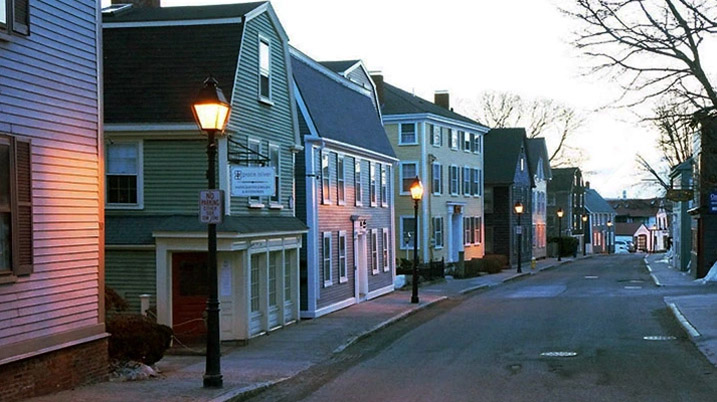Online Architecture History Courses from Marblehead and Deerfield
This week I heard about two online courses on New England architecture being taught in the coming weeks.
For the Marblehead Museum, Judy Anderson will speak about “The Architectural History of Marblehead” and how the town’s buildings reflect its development over 350 years. Anderson has delivered versions of these talks at the museum and for the town, and now she’s going digital.
This course will take place over four Wednesdays, 10:00 to 11:30 A.M., with this schedule:
The cost for this course is $60, or $50 for Marblehead Museum members. Register at this webpage.
In March, Eric Gradoia, Historic Deerfield’s Director of Historic Preservation, will explore “The Vernacular Architecture of Early New England” for that museum.
These talks will trace the evolution of the dwelling house with respect to architectural trends, advances in technology, and social customs. Gradoia will focus on vernacular architecture: common buildings, purpose-built, that employ local building traditions and materials in their construction.
Each session will cover a distinct period from the seventeenth to the mid-nineteenth century. Talks will cover typical house forms, building plans, construction practices, and architectural details unique to each period, along with discussions on such broader themes as architectural treatise and print material, the transition from craft-based building practices to machine-manufactured materials, and design movements and public tastes.
This course will also take place on Wednesdays, but from 6:00 to 8:00 P.M.:
The cost for this Historic Deerfield course is $125, $110 for members, and $80 for students. Register online at this page.
For the Marblehead Museum, Judy Anderson will speak about “The Architectural History of Marblehead” and how the town’s buildings reflect its development over 350 years. Anderson has delivered versions of these talks at the museum and for the town, and now she’s going digital.
This course will take place over four Wednesdays, 10:00 to 11:30 A.M., with this schedule:
- 3 February: British settlement in 1629 and boom town through the 1760s
- 10 February: Georgian style developing across the 1700s until the economy crashed during the war
- 17 February: Post-Revolution “Federal” style, the 1830s recovery, and Abbot Hall cornerstone laid in 1876
- 24 February: Major fires in 1877 and 1888, the town as a resort, post-World War development
The cost for this course is $60, or $50 for Marblehead Museum members. Register at this webpage.
In March, Eric Gradoia, Historic Deerfield’s Director of Historic Preservation, will explore “The Vernacular Architecture of Early New England” for that museum.
These talks will trace the evolution of the dwelling house with respect to architectural trends, advances in technology, and social customs. Gradoia will focus on vernacular architecture: common buildings, purpose-built, that employ local building traditions and materials in their construction.
Each session will cover a distinct period from the seventeenth to the mid-nineteenth century. Talks will cover typical house forms, building plans, construction practices, and architectural details unique to each period, along with discussions on such broader themes as architectural treatise and print material, the transition from craft-based building practices to machine-manufactured materials, and design movements and public tastes.
This course will also take place on Wednesdays, but from 6:00 to 8:00 P.M.:
- 3 March: First Period: English Tradition and the New World Dwelling
- 10 March: Georgian Architecture: New England Classicism and the Rural Residence
- 17 March: Federal Architecture: The Refined and Elegant House
- 24 March: Greek Revival and Picturesque Architecture: Building in the Age of Technology
The cost for this Historic Deerfield course is $125, $110 for members, and $80 for students. Register online at this page.



1 comment:
It's a shame that the Marblehead course is during standard working hours for most people. I would love to have attended (watched), but I can't afford to be away from work from 10 to 11:30 during a work day.
Post a Comment